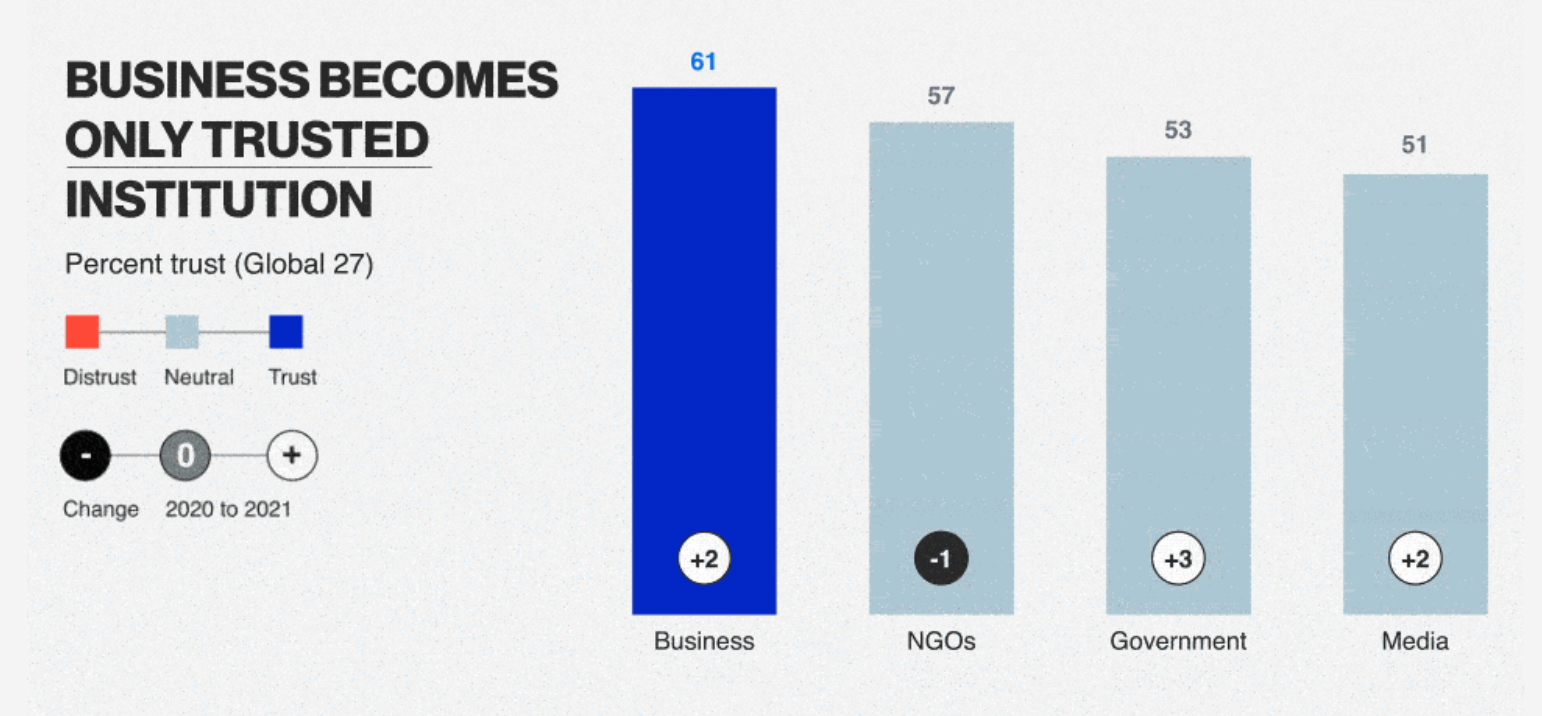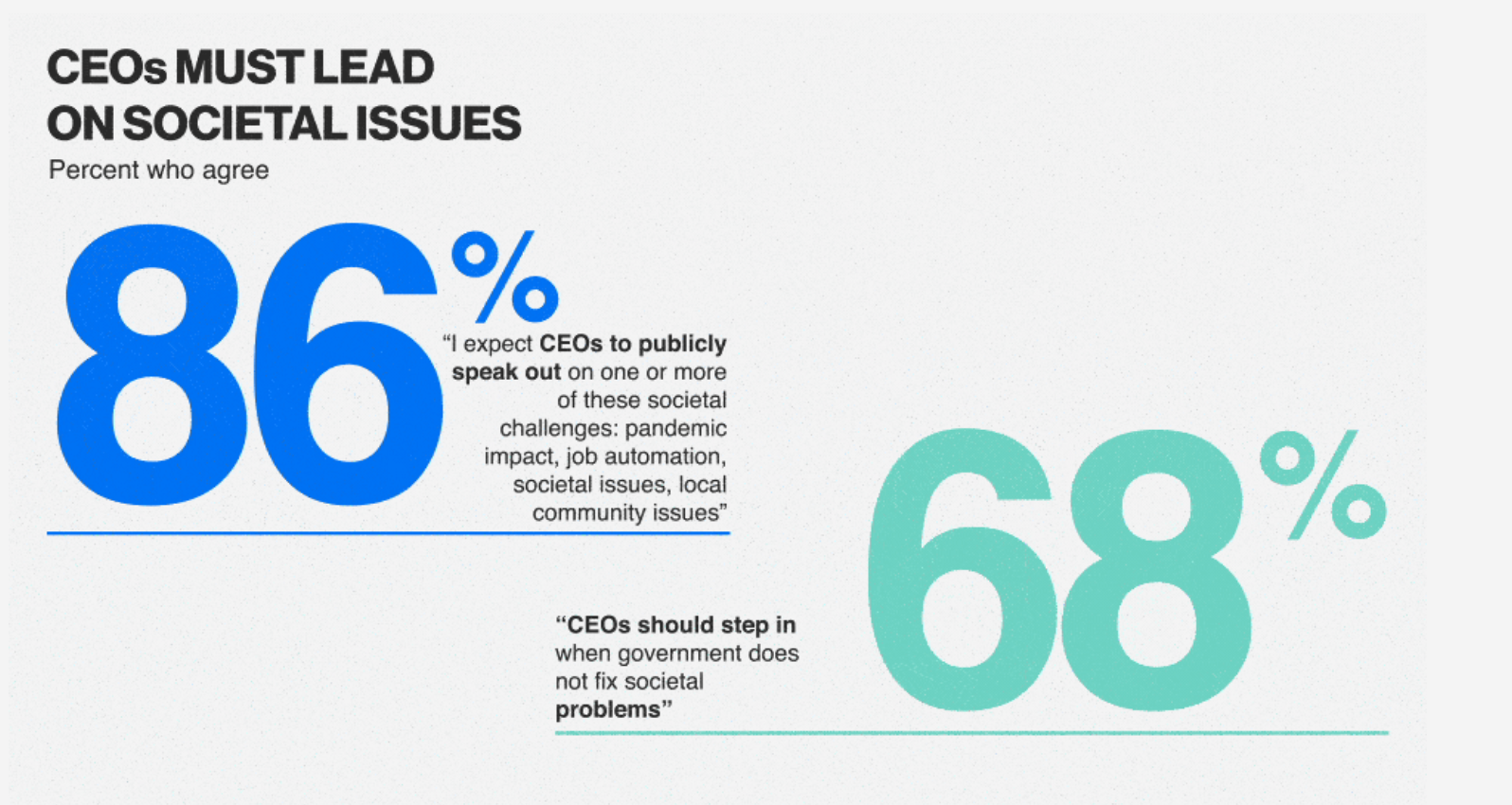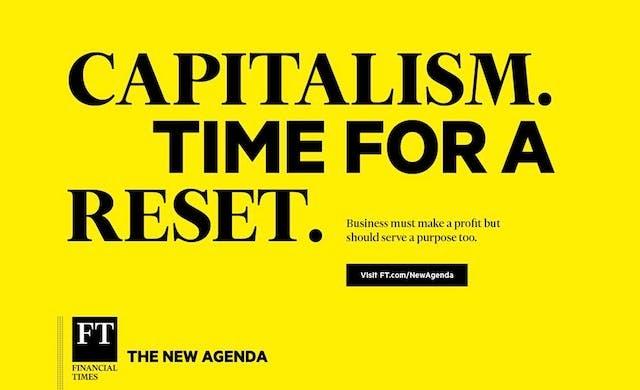The ground is shifting in business management and how companies generally fit into modern capitalist economies. Since Ross Douthat coined the term in a New York Times article in 2018, there has been a controversial discussion about 'Woke Capitalism'. Critics such as Helen Lewis see it as a driver for cancel culture that does not challenge the main problem - existing power structures. Other commentators, such as Will Hutton, effectively equate "woke" with "stakeholder" capitalism. Whatever your view on this topic, it seems clear that you cannot ignore it.
The title of this post already gives away my view. But why do I believe businesses need to rethink their role as social and political actors in addition to their economic function?
Let's start with the CEOs themselves. Aaron K. Chatterji and Michael W. Toffel in their 2018 Harvard Business Review article on "The New CEO activists "point to a variety of reasons why CEOs had increasingly spoken up on controversial political issues that were unrelated to their firm's direct activities. These are:
- Representation of corporate values
- An expression that companies should have a higher purpose
- Personal conviction of business leaders
- Corporate purpose has become more important to Millennials (customers as well as employees)
- Leadership role to represent the people who work for a company
You can summarize these points: Corporate purpose and values are becoming increasingly important because internal and external pressures force companies to move in this direction.
Consumer Pressure
Governments and investors, of course, also generate external pressure, but I will deal with these aspects in a future post. Here, we are talking about expectations of society more generally rooted in consumer demand.
Younger people's "purposeful "attitude towards businesses has long been established. McKinsey research, for instance, found out that:
In a transparent world, younger consumers don’t distinguish between the ethics of a brand, the company that owns it, and its network of partners and suppliers. A company’s actions must match its ideals, and those ideals must permeate the entire stakeholder system.
Recent evidence suggests that younger people are not alone in demanding an enhanced societal role for businesses. Take the 2021 Edelman Trust barometer, for instance. It shows that business is generally the most trusted institution across the 27 countries surveyed. So far, so good.
But along with this trust come significant expectations. Today, most people, at the very least, expect business leaders to take a public stand on societal issues. More than two-thirds of the population think CEOs should step in to address these issues directly if governments seem unable to fix them.
So what used to be a trait of younger generations, in particular, seems to have spread across society. This is hardly surprising given the scale of society's pressing problems and the hitherto insufficient attempts to address them.
This trend represents a significant shift from the Friedman doctrineformulated in a classic New York Times essay published in 1970. In this article, Milton Friedman argued that the only social responsibility of a business is to increase profits for its shareholders. In contrast, today's understanding is that with great economic power comes great societal responsibility, not just responsibility towards shareholders.
Internal Pressure
In the face of many unresolved challenges, society's expectations towards business are changing. However, the pressure is also driven by internal sources. Increasingly, making a net positive impact through your business activities is a precondition for attracting and retaining some of the best talent. The place of work is increasingly viewed in the light of one's attitudes and values rather than as a neutral space for economic activity.
Caroline Kaeb and David Scheffer's article on the rise of CEOs as social activists echoes previous research findings: employees expect their companies to be leaders on societal issues. If they are not, companies are likely to lose out in the fight for the best talent. In many critical sectors, we find an employee market as skills are scarce and employers are fiercely competing.
Moreover, if you compromise your purpose and values in the eyes of your employees, a company's leadership could face a mutiny. Google employees, for example, put so much pressure on top management that it was forced to abandon a contract extension with the US Department of Defense. A critical mass of employees either resigned in protest or objected to the use of Google's Artificial Intelligence (AI) in war situations, leaving Google's C-suite little choice apart from withdrawal.
Against the backdrop of recent developments during the COVID-19 crisis, the intrinsic motivation of employees to work for a business is likely to become even more important as the office environment changes for good. Technology firms, in particular, have long had a culture of offering food and other necessities in their offices. In the process, they created an environment that meant employees worked long hours and barely had to leave the office. What was sold as personal perks was more often than not a nudge to keep people engaged in their work rather than their personal lives.
Fast forward to 2020-2022, and employees are barely in the office. The increased use of home offices will become standard even beyond the pandemic. This also means less control over employees. Corporate purpose and communicating it effectively is thus likely to become a key driver of productivity. Or, as Alyson Meister and David Bach put it:
An organization that embraces a genuine, clear purpose rooted in a societal need can unleash higher performance and engagement because employees connect on a personal level with the business.
Things Are Moving Already
Considering this dual pressure from outside and inside businesses, it is hardly surprising that corporations have been moving away from the Friedman doctrine. The most high-profile example is the US Business Roundtable.
In a statement published on 19 August 2019, the organization updated its principles for corporate governance and, for the first time since 1997, moved away from the primacy of shareholder interest. As Jamie Dimon, Chairman and CEO of JPMorgan Chase & Co. and Chairman of Business Roundtable, stated:
Major employers are investing in their workers and communities because they know it is the only way to be successful over the long term. These modernized principles reflect the business community’s unwavering commitment to continue to push for an economy that serves all Americans.
Or look at a new brand platform launched by Financial Times in 2019 as another real-world example:
The publisher’s first major brand campaign since the global financial crisis, The New Agenda will position the FT at the forefront of debate about the disruption of established corporate and economic models and what should come next. Launching with the line - Capitalism: time for a reset - it will encourage business leaders to find opportunity in the new normal and promote stronger corporate purpose.
Conclusion
To sum up, capitalism is changing, and with it the role businesses are expected to play in society. Strong external and internal drivers force companies to define themselves as social and political actors in addition to their traditional role as economic agents. Ignoring this trend is no longer a viable option - whether you like it or not. Smart businesses proactively move with these trends and turn them into opportunities and competitive advantages. Those who are late - in business and politics - are usually punished by life.


